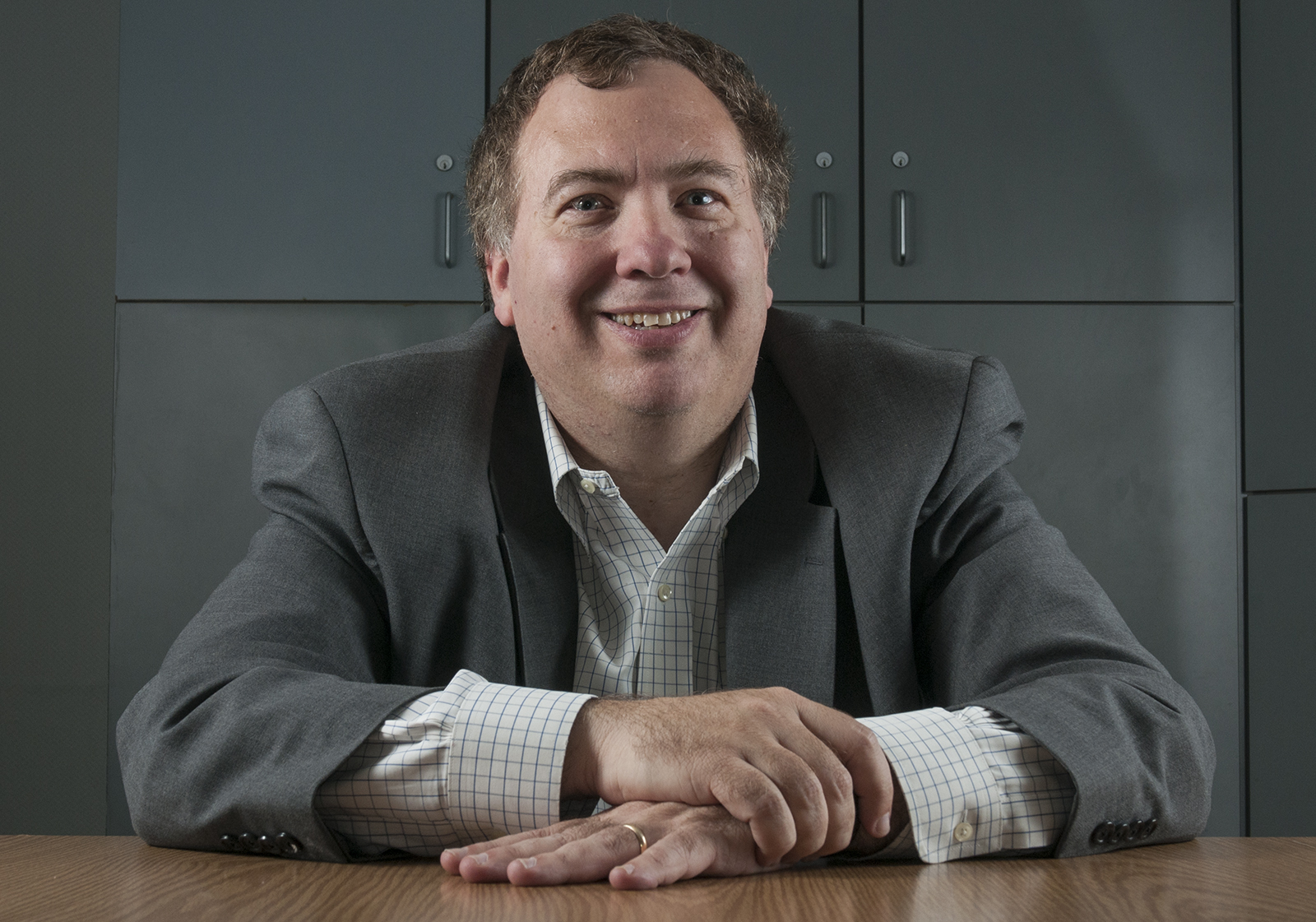Q&A: Former adviser to John Kerry talks peace between Israel, Palestine

(Daniel Alcazar/Daily Bruin senior staff)
By Kiera Kosciolek
Nov. 18, 2015 7:00 a.m.
David Makovsky, former adviser to Secretary of State John Kerry, spoke Monday at a Bruins for Israel event that aimed to inform students about the potential for peace in the Middle East.
Makovsky worked with Kerry for about nine months in 2013 and 2014 to draft peace agreements between Israel and Palestine that attempt to resolve territory disputes. He also worked as a journalist and authored several books about Middle Eastern politics.
The Daily Bruin’s Kiera Kosciolek sat down with Makovsky to discuss the current situation in the Middle East and his hopes for college students who work to achieve peaceful coexistence on campus.
Daily Bruin: What was your role as an adviser to John Kerry?
David Makovsky: We were a small unit called the Special Envoy for Israeli-Palestinian Negotiations. I was senior policy adviser, so my job was to suggest how to move the negotiations forward. It was the most intensive effort the United States has ever put into what we call solving final status issues, or the final disposition of the territories.
DB: What were the main goals you set out to accomplish as an adviser?
DM: There are five core issues. I personally believe we had a breakthrough on the territory and on the refugee issue, but we didn’t answer three of the questions: the issue of Jerusalem, the issue of security arrangements and the issue of mutual recognition – do you accept that Israel is a Jewish state and Palestine is a Palestinian state?
DB: Given the current state of affairs in Israel and Palestine, do you think true peace is achievable?
DM: It could be that five out of the five (core issues) are not attainable now. There is too much history, and too little geography. I was asked to testify before the U.S. House of Representatives about the recent wave of stabbings in Jerusalem, and what’s scary is that there is no guiding hand (in these regions). And if there’s no leadership, it’s going to be chaos. I worry that people will see no hope and that becomes the new normal.
DB: Do you think the younger generations will be able to impact relations between the countries in any way?
DM: I was at the Madrid Peace Conference, and I was at the handshake on the White House lawn (between Israeli and Palestinian leaders). In this roller coaster, I’ve seen ups. But the worst thing to deprive people of is hope; it’s like depriving them of a future. I’m worried there is a generation of twenty-somethings who don’t have any positive memories.
DB: What is your main message for college students?
DM: Maybe a classic two-state solution cannot be implemented all at once, but it can’t be abandoned either. What I want is a message of coexistence and civility on campus. I want the message that we don’t import the politics of confrontation, but we export politics of dialogue and pluralism, which are the hallmarks of American society.
DB: How do you suggest students get involved with these issues?
DM: Maybe it could be social action, or maybe it could be alternative spring breaks when they go and build a kindergarten in a Jewish neighborhood and then one in a Palestinian neighborhood. We have to unite around some common ideas and we cannot give way to despair. We shouldn’t just say “if we can’t do it all, then we should do nothing.”
DB: In 1994, you were the first journalist writing for an Israeli publication to enter Damascus, a Syrian city with a history of tension in the Palestinian-Israeli conflict. What was that experience like and how did involvement in journalism shape your policymaking?
DM: Being a journalist was like a front-row seat to history. You got under the fingernails of a country. What it did for me in an analytical sense is I would always try to make sure I was talking to all sides – American, Palestinian, Israeli. Being a journalist was this very rare opportunity, like being a policy analyst at a think tank, because you can see all sides. You cannot do this job unless you really understand what drives each side. You need to understand what their narratives are.
DB: What have you been working on since serving as an adviser to John Kerry?
DM: I’m back at the Washington Institute doing a lot of off-the-record sessions of dialogue to see what is possible today. The danger in Washington, D.C. is you don’t want to just pontificate. You never want to be in the position that you’re living off the past; you want to always stay current. There’s nothing like (working on a major project), and I hope everybody, whatever they do, looks for ways to be bigger than themselves.
Compiled by Kiera Kosciolek, Bruin contributor.


